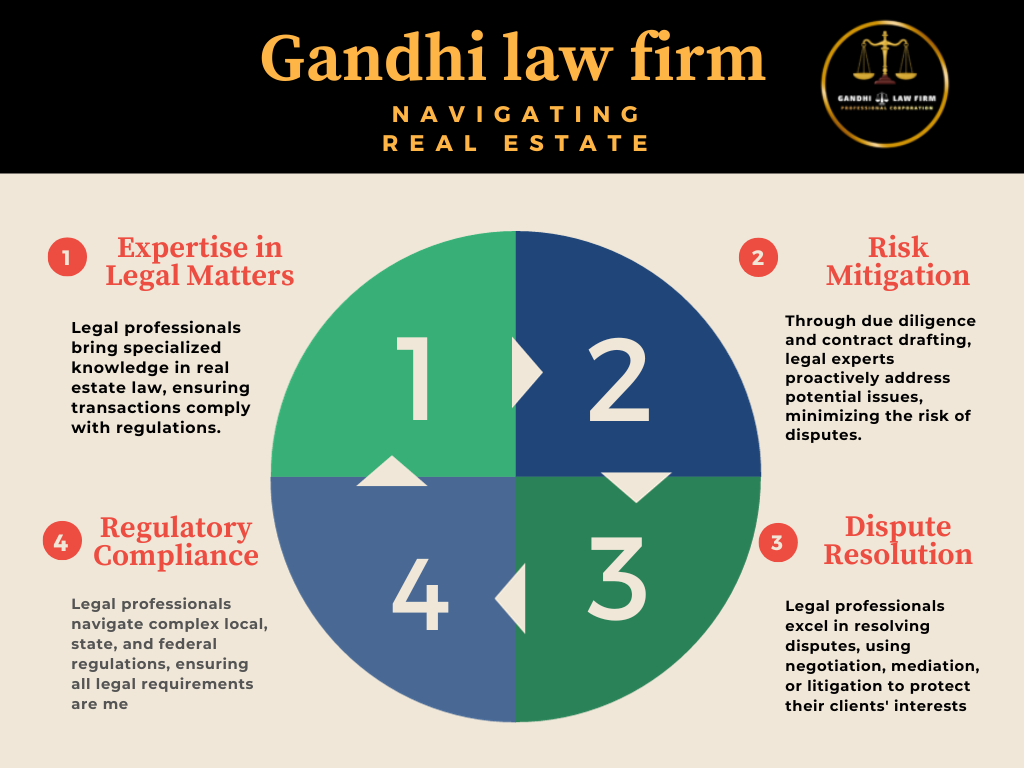Real estate transactions are complex and multifaceted processes that involve various legal aspects. Whether it’s buying, selling, leasing, or developing property. Furthermore, in the same the involvement of legal professionals is crucial to ensure a smooth and legally sound transaction. In this article, we will explore the indispensable role of legal professionals in the real estate industry and further how their expertise contributes to the success of transactions.
Table of Contents
Toggle1. Contract Drafting and Review
One of the primary responsibilities of legal professionals in real estate transactions is drafting and reviewing contracts. These contracts encompass a multitude of details, including terms of sale, purchase agreements, lease terms, and financing arrangements. Legal experts ensure that these documents accurately reflect the intentions of all parties involved and comply with relevant laws and regulations.
A well-drafted contract can prevent disputes and streamline the overall process, providing a solid foundation for a successful transaction. Legal professionals possess the knowledge and experience to anticipate potential issues and address them proactively in the contract, protecting the interests of their clients.
2. Due Diligence
Real estate transactions involve a thorough investigation of the property’s legal status and potential liabilities. Legal professionals play a vital role in conducting due diligence to identify any legal obstacles or issues that may affect the transaction. This may include zoning regulations, title searches, environmental concerns, and other legal aspects.
Through meticulous research and analysis, legal professionals ensure that their clients have a comprehensive understanding of the property’s legal standing. This information is crucial for making informed decisions and mitigating risks associated with the transaction.
3. Title Examination and Insurance
Clear and marketable title is essential for any real estate transaction. Legal professionals engage in title examination to verify the ownership history of the property and identify any encumbrances or claims that may affect the title. They also facilitate the purchase of title insurance to protect buyers and lenders from potential title defects.
Moreover, title insurance provides an added layer of security, ensuring that the property’s title is free from defects or undisclosed claims. Legal professionals guide their clients through this process, mitigating the risk of unforeseen title issues that could disrupt the transaction.
4. Regulatory Compliance
Real estate transactions are subject to a myriad of local, state, and federal regulations. Legal professionals navigate these regulations, ensuring that their clients comply with all applicable laws. This includes zoning laws, environmental regulations, fair housing laws, and other legal requirements that may vary depending on the location and type of transaction.
Further, by staying abreast of the ever-changing legal landscape, legal professionals help their clients navigate regulatory complexities, avoid potential legal pitfalls, and secure the necessary approvals for the transaction to proceed smoothly.
5. Dispute Resolution
Despite meticulous planning, real estate transactions may encounter disputes or unforeseen challenges. Legal professionals are instrumental in resolving these issues through negotiation, mediation, or, if necessary, litigation. At the same time, their expertise in real estate law allows them to navigate disputes effectively and protect the interests of their clients.
6. Financing and Mortgage Agreements
Securing financing is a critical aspect of many real estate transactions, especially in property acquisitions. Legal professionals assist clients in navigating the complexities of mortgage agreements, ensuring that the terms and conditions align with their interests. They review loan documents, negotiate terms, and provide legal advice on the implications of various financing options.
Understanding the financial implications of a real estate transaction is crucial for clients, and legal professionals play a key role in clarifying and simplifying these intricate financial arrangements. Their expertise in financial and real estate law ensures that clients make informed decisions about their financing options.
7. Escrow and Closing Processes
The closing process is the culmination of a real estate transaction, where the transfer of ownership occurs. Legal professionals oversee the escrow and closing processes, ensuring that all contractual obligations are met before the finalization of the deal. They work closely with title companies, lenders, and other stakeholders to coordinate the closing, review closing documents, and ensure compliance with legal requirements.
Moreover, by meticulously managing the closing process, legal professionals contribute to the seamless transfer of property ownership. They also ensure that all necessary documentation is in order, facilitating a smooth transition and reducing the risk of post-closing disputes.
8. Lease Agreements and Landlord-Tenant Relationships
The closing process is the culmination of a real estate transaction, where the transfer of ownership occurs. Legal professionals oversee the escrow and closing processes, ensuring that all contractual obligations are met before the finalization of the deal. They work closely with title companies, lenders, and other stakeholders to coordinate the closing, review closing documents, and ensure compliance with legal requirements.
Moreover, by meticulously managing the closing process, legal professionals contribute to the seamless transfer of property ownership. They also ensure that all necessary documentation is in order, facilitating a smooth transition and reducing the risk of post-closing disputes.
9. Real Estate Development and Construction
For real estate development projects, legal professionals guide clients through the complex process of obtaining permits, approvals, and zoning variances. They navigate the regulatory landscape, addressing issues related to land use, environmental impact, and community planning. Legal experts also draft contracts for construction and development agreements, ensuring that all parties involved are clear on their roles and responsibilities.
In real estate development, legal professionals act as strategic advisors, helping clients navigate the legal complexities associated with transforming raw land into developed properties. Their involvement is crucial in mitigating risks and ensuring compliance with regulations throughout the development process.

Conclusion
In the intricate world of real estate transactions, legal professionals play a pivotal role in ensuring the smooth and successful completion of deals. From drafting contracts to conducting due diligence, navigating regulatory landscapes, and resolving disputes, their expertise is essential for minimizing risks and safeguarding the interests of all parties involved. Engaging a skilled legal professional early in the real estate transaction process is a strategic decision that contributes to the overall efficiency and legality of the transaction.



